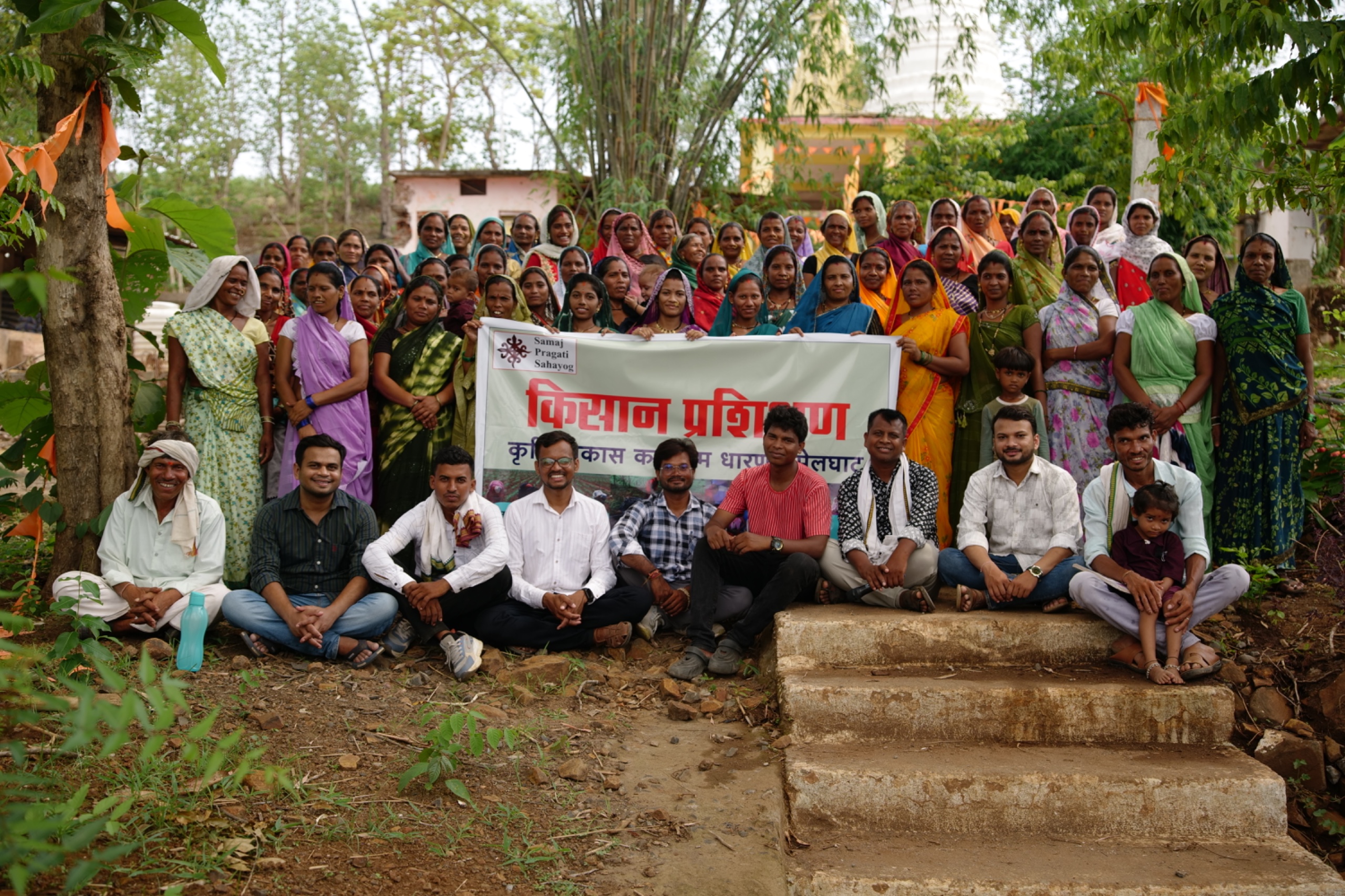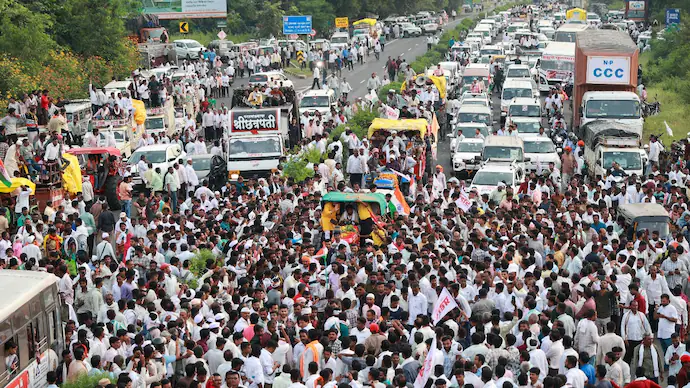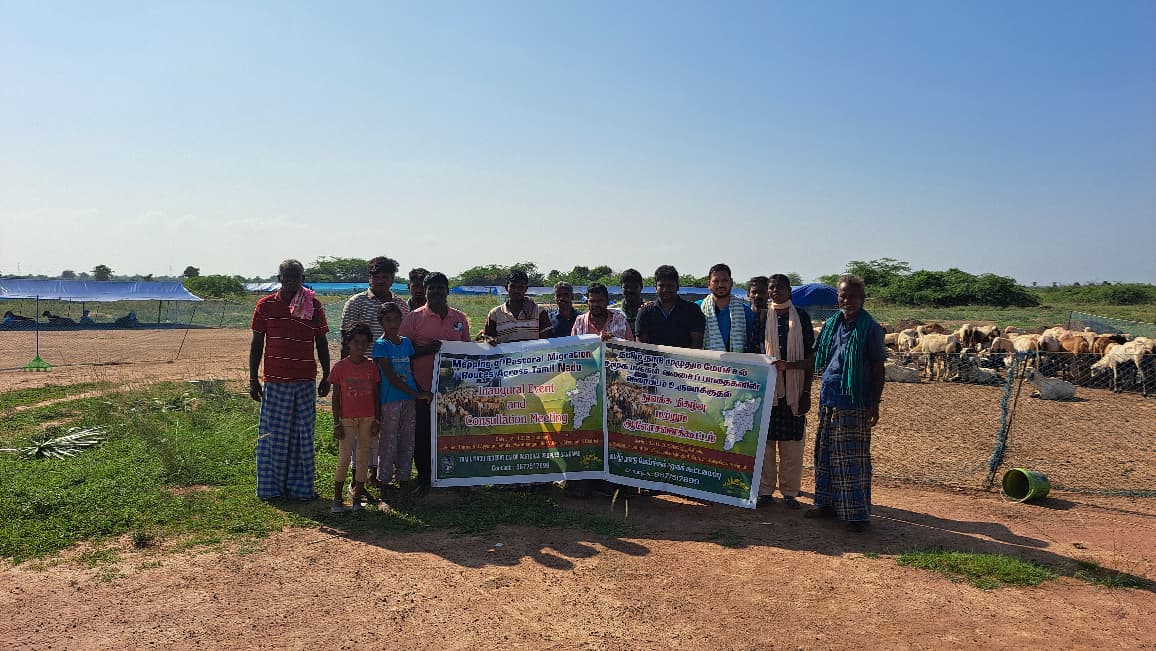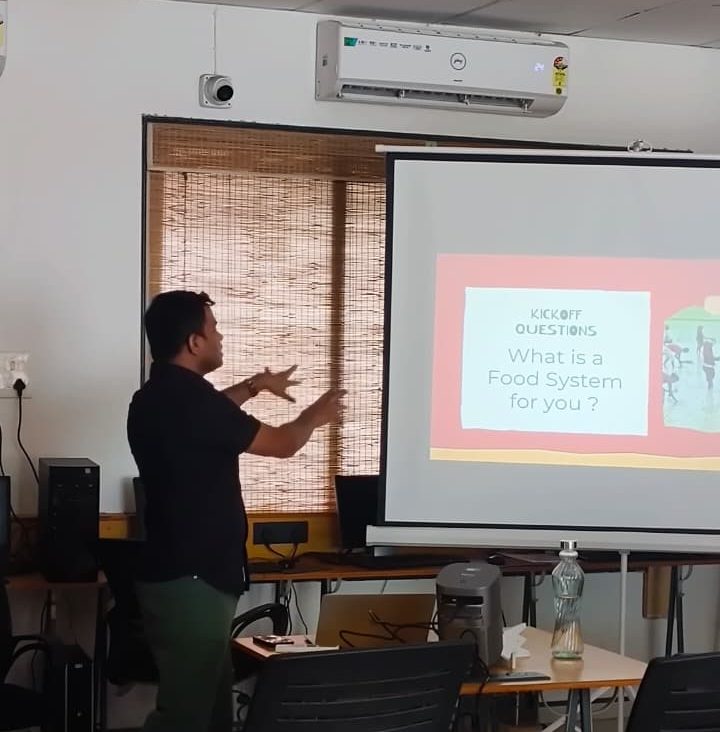In a major step toward strengthening agroecological farming practices in tribal areas, Samaj Pragati Sahayog invited Akash Naoghare, who led two impactful workshops in Khari and Bod villages of Melghat on June 13 and 14, 2025. Organized by Samaj Pragati Sahayog, the sessions focused on empowering over 140 women farmers through practical, community-based agricultural training rooted in sustainability and seed sovereignty.
Akash Naoghare delivered in-depth sessions on the evolution of farming, the importance of seed sovereignty, and the urgency of indigenous seed conservation in the face of climate and market challenges. Drawing from his decade-long work in the field of food systems and natural farming, he emphasized the principles of agroecology, co-existence with nature, and self-reliance in food and farming systems.
“Agroecology is not a new concept for our communities — it’s a living tradition. Our job is to revive and strengthen it with today’s realities in mind,” Naoghare told the participants, encouraging them to value and preserve local seed diversity and indigenous knowledge.
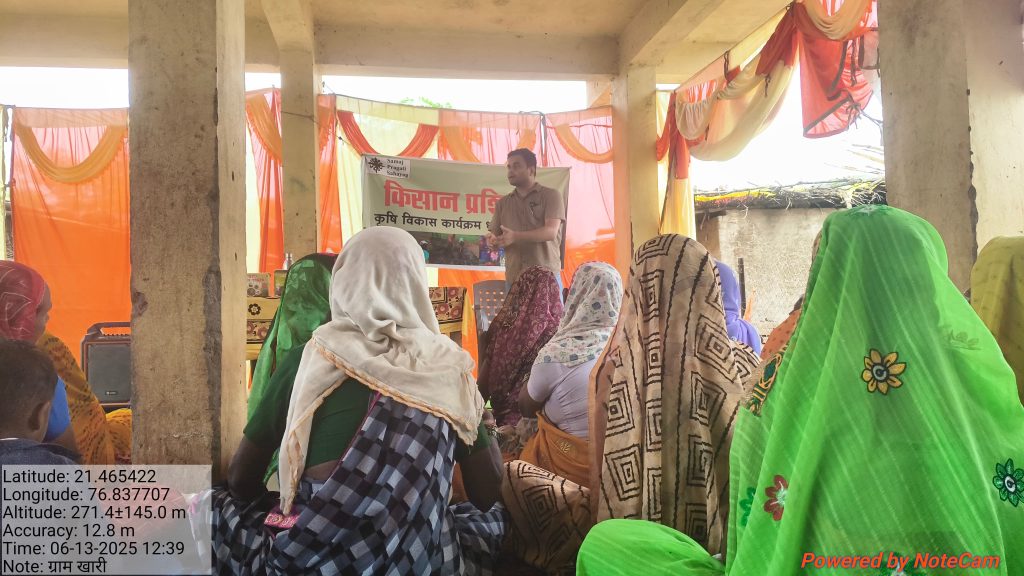
The workshops were held in:
- Khari village on June 13, with coordination by Programme Officers Swami Durke, Manoj Kuyate, Suraj Rajput, and Ravi Dhandare, and Supervisors Ramdas Bhilavekar and Tushar Jawarkar. Mitaan volunteers Pankaj Sawalkar, Ramdas Jawarkar, Sadashiv Chatur, Rahul Kasdekar, and Mahendra Bhilavekar played key roles in mobilizing the community.
- Bod village on June 14, where facilitators included Manoj Kuyate, Suraj Rajput, Supervisor Ramdas Bhilavekar, and Mitaan team members Ashok Bhilavekar, Anil Selukar, Pramod Mawaskar, and Ravindra Jawarkar.
The training covered the following topics in Hindi, ensuring local accessibility:
- Importance of indigenous seeds
- Techniques for seed germination and seed treatment
- Mixed cropping and intercropping
- Natural pest management methods
- Preparation of compost using farm waste
- Establishment and benefits of kitchen gardens
Live demonstrations using bio-resources allowed the women farmers to engage hands-on with each topic. The sessions also sparked dialogues about food security, ecological health, and the economic independence of women through locally adapted farming methods.
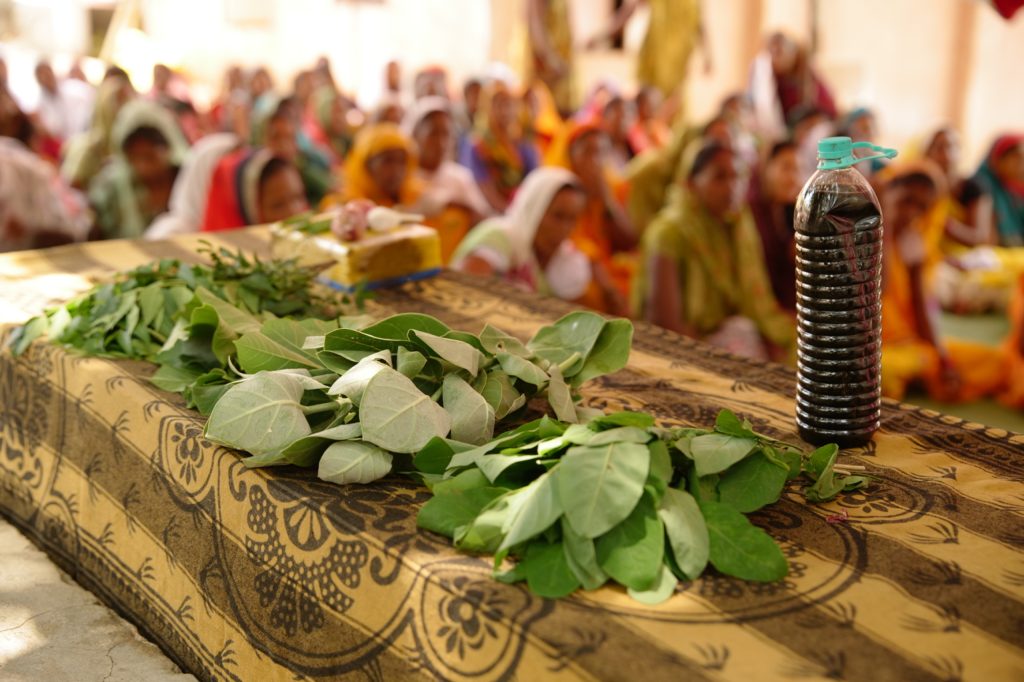
Many farmers expressed their appreciation for the practical nature of the sessions. “This training helped us realize the power of the seeds we already have,” said a participant from Khari. “We don’t need to depend on outside companies when we understand how to save, treat, and grow our own.”
Samaj Pragati Sahayog plans to scale up this initiative across more villages in Melghat, with a focus on women-led agroecological transformation.

